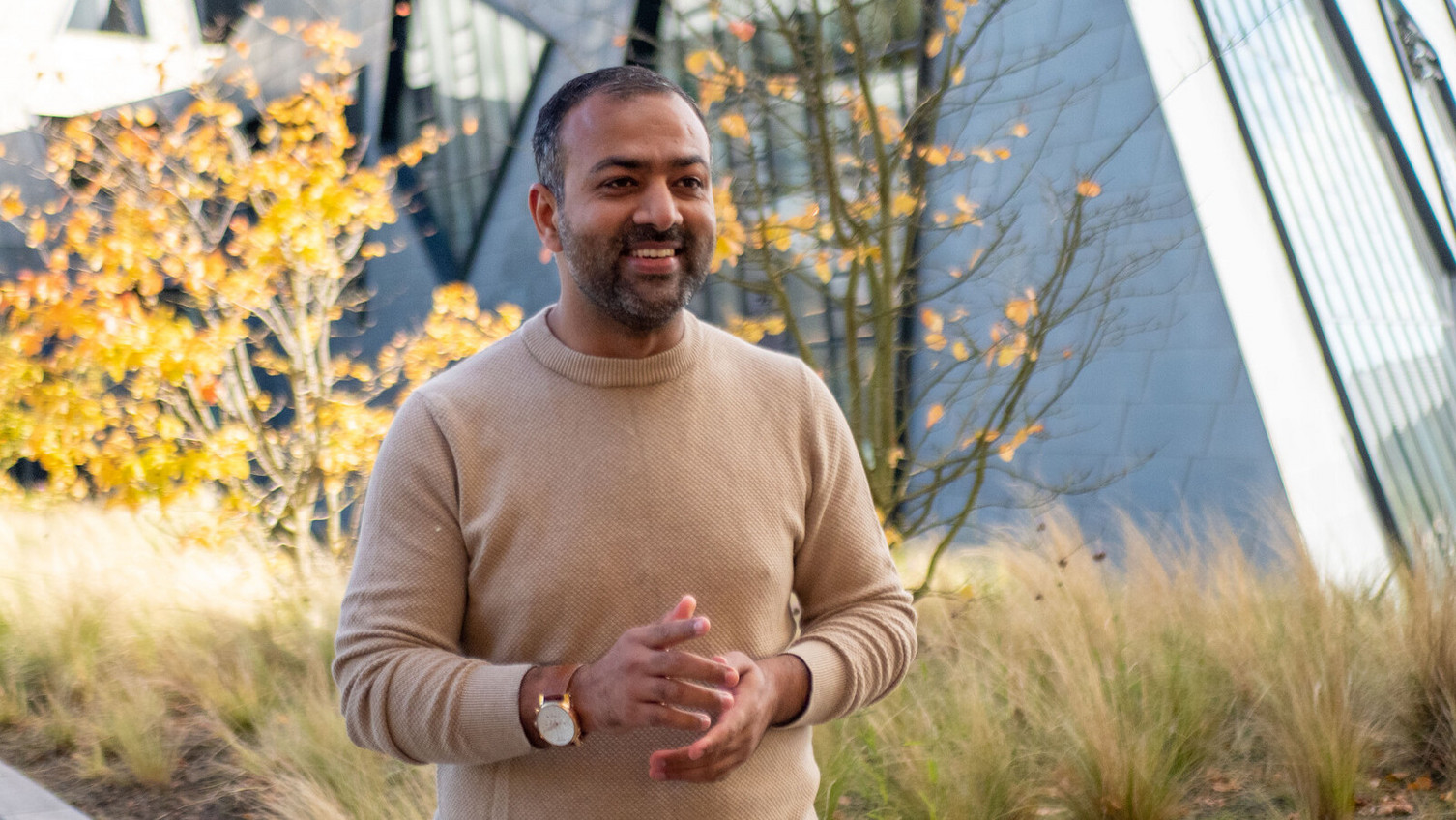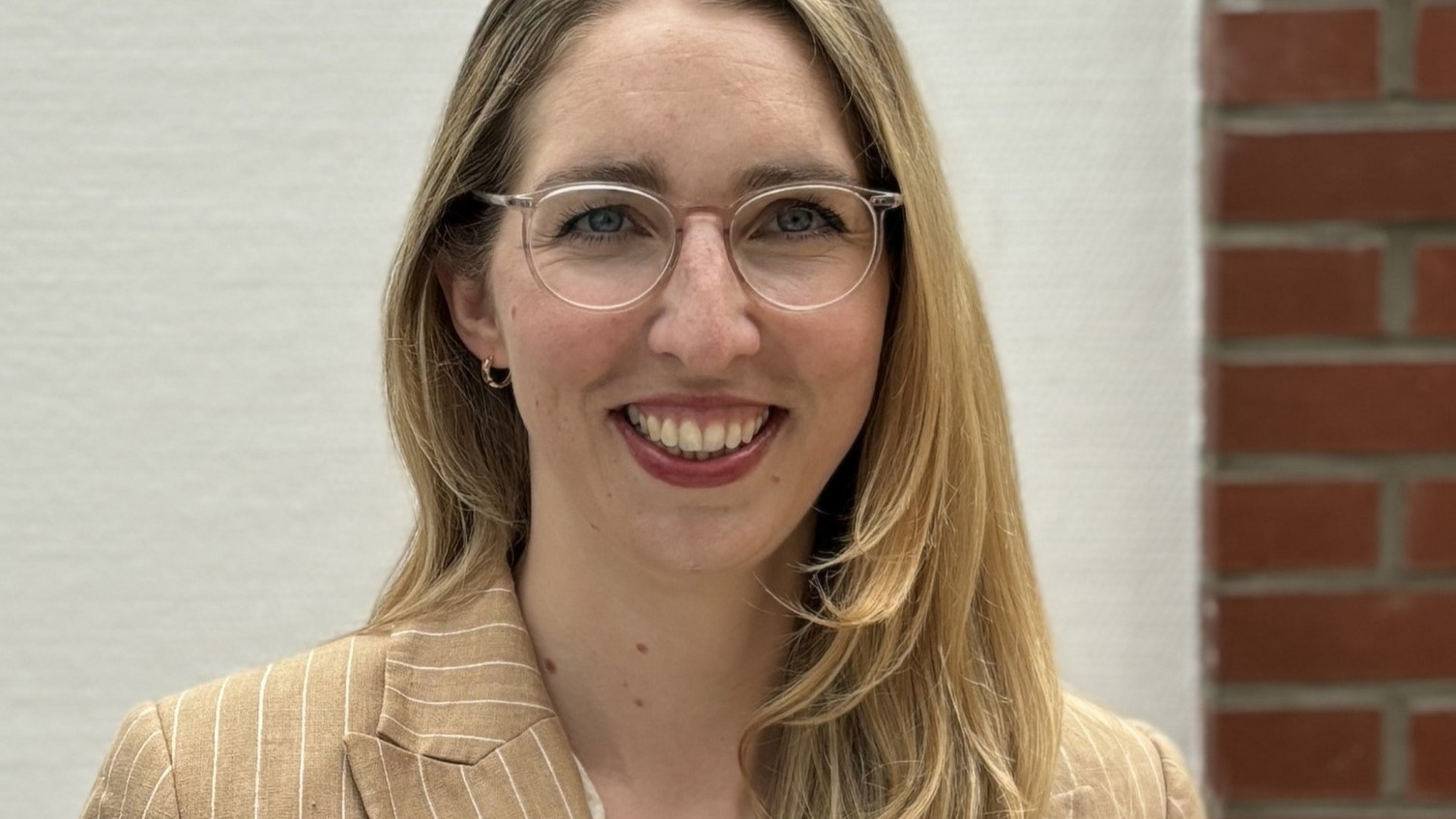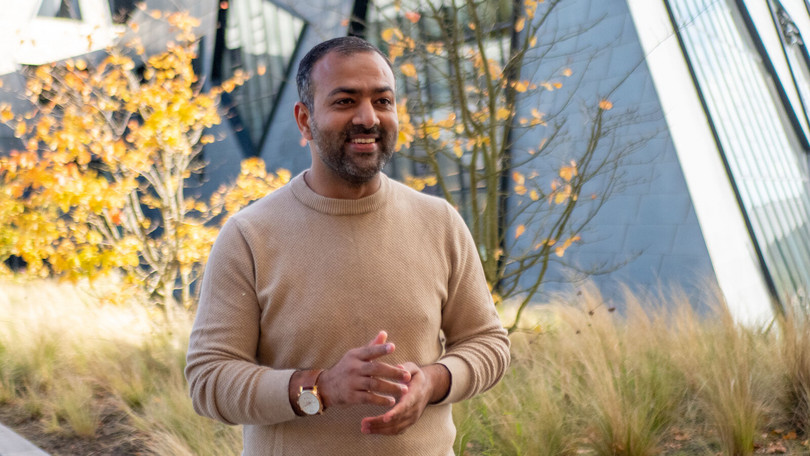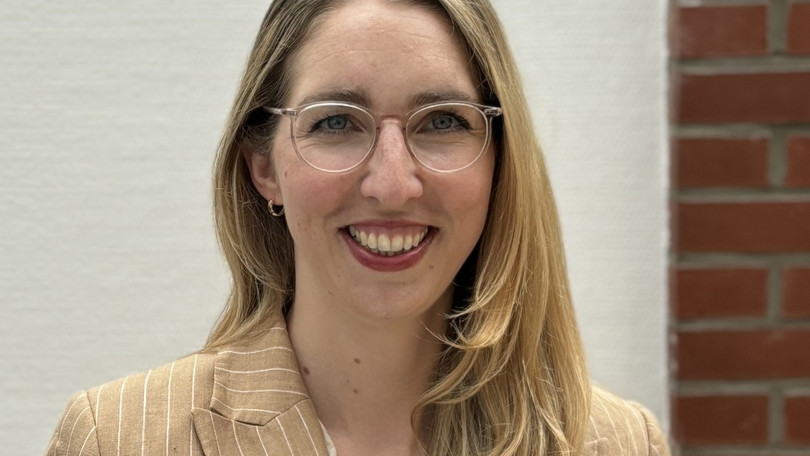Testimonials
Leuphana Graduate School empowers its doctoral researchers to seek answers to life’s most challenging questions. We carry out this mission by creating spaces for interdisciplinary interaction. Read and hear their stories and become part of the Research Group Sustainability Science.
Alexa Böckel
Leuphana alumna Alexa Böckel is currently pursuing her doctorate at the Centre for Sustainability Management at Leuphana University Lüneburg. Her doctoral thesis deals with the topic of ‘Startups in the Circular Economy.’ Her focus is on how startups can contribute to the circular society. For her research, she talks to numerous founders about their visions and works with them on concepts for a better future. In our interview, she talks about her journey from the idea of a doctoral thesis to her current work as an action researcher. She provides insights into the topics of supervision, financing, planning and completing a doctoral thesis, as well as doctoral studies at Leuphana. She will also soon be publishing an anthology on myths of the circular economy.
But that's not all – she also talks about her work as head of the Social Change Hub. The SCHub is dedicated to the education and training of social change actors.
Najamul Memon
 ©Leuphana/Ciara Charlotte Burgess
©Leuphana/Ciara Charlotte Burgess
Why did you decide to do a doctorate at Leuphana?
I choose a doctorate because of the academic freedom and my interest in the topics related to sustainable development goals and more specifically sustainable energy. I was lucky to be part of junior research group “SteuerBoard Energie” which further provided me avenues to merge my academic background of public policy with regulations and financing under the leadership of my supervisors here at the Institute of Sustainability Governance.
When did you first think about doing a doctorate?
Since years I carry a dream of helping humanity in getting their social issues resolved but never knew how. Thanks to DAAD for providing me an amazing opportunity to be part of Helmut-Schmidt Fellow for Public Policy and Good Governance where I got the chance to meet many internationals and we often used to discuss issues of governance in our respective countries. It was during my apprenticeship period at the University of Passau I found Sustainable Development Goals (SDGs) as the key indicators to resolve the development related issues across the globe. Germany being at the forefront of renewable energy inspired me to choose renewable energy (RE) as my focus area and that was one of the motivations to work on topics related to energy (SDG-7) and resolve the issues of energy poverty, energy access by guiding policy makers as well as inspiring youth in the sector. This might look very optimistic, so I am.
What is different now compared to the Master's times?
Being a doctoral candidate is different from being a master’s student. You need to be very focused and concretely deal with some topic in details. Being a doctoral candidate itself feels like you are the expert in the field (if not now may be in future). While working with your colleagues in a team you learn a lot about research, scientific communication, cross cutting themes and different methodologies of research and of course you read a lot.
What do you benefit from most during the doctoral phase?
During the doctoral studies you learn how to present your research problem and find different ways to resolve the jigsaw puzzle. Besides academics, you also get multiple opportunities to present your work, share your ideas and get feedback from the experts in different formats i.e., conferences, symposiums, and summer schools etc. All these platforms also provide you with ample opportunities to network and identify your scientific community.
What would you say is different at Leuphana than at other universities?
I am not sure about other universities, but one aspect that I like the most at Leuphana is “sustainability consciousness” be it in the form of different courses, degree programmes, in the architecture as well as the student community.
What do you expect from the doctorate at Leuphana?
I am expecting to develop my niche in the research and together with my mentors lead the discourse beyond academia.
Do you have plans to go abroad for a research stay? Have you spent a research period abroad?
I recently experienced the first ever research stay abroad when I visited beautiful northern parts of Pakistan. During my PhD field research, I met the off-grid rural communities and explored different forms of community energy models. I was amazed to see the way rural communities together with the help of local NGOs as well as multilateral donor agencies build and manage the hydroelectric power projects. At the same time, it hurts when you see those rural off-grid communities have not been focused through policies and regulatory framework.
Do you already know whether you want to pursue an academic career after your doctorate?
This is the question that I ask myself and still not sure whether I would stay in academia. But you never know, on the one hand I enjoy academic freedom and on the other hand I want to create a direct impact in the policy circles by joining some political elites or think tank(s), or it could be mix of academia and political leadership.
Thank you very much for the interview!
Dr. Marie Weiß
 ©Leuphana
©Leuphana
Leuphana University of Lüneburg confers the Leuphana Dissertation Award to Dr.in Marie Weiß for her dissertation entitled "How to embed sustainability in the core of higher education institutions: Drivers of, barriers to, & patterns behind the implementation processes of sustainability curricula".
Marie Weiß completed her doctorate at the School of Sustainability. Her dissertation is positioned at the interface of sustainability science and educational science by investigating how sustainability curricula can be implemented and established in universities. With her work, Ms Weiß addresses a highly topical and relevant but previously theoretical discourse in the sustainability sciences and thus breaks new empirical ground. Through extensive empirical diligence, she creates an excellent contribution with a solution-orientated approach geared towards transdisciplinary impact.
What made you decide to do a doctorate and why did you choose Leuphana?
I did my Bachelor's and Master's degree at Leuphana and have already worked for many years as a student assistant and research assistant in a scientific project at Leuphana. Thanks to the close cooperation with the doctoral students, I was able to assess what kind of work I could expect. Since I love scientific work and find it easy, I decided to do my doctorate at Leuphana.
What special memories do you associate with your doctorate?
I did my doctorate in an international project in cooperation with Arizona State University (ASU) with three other doctoral students. The stays at ASU, where we lived together as a team, a trip to the Grand Canyon, but also the friendship and support, especially among the doctoral students, gave me joy and good friends who are still with me. I am also grateful for the very good initial support with both a lot of freedom and feedback.
What challenges did you face during your doctorate and how did you deal with them?
I did my doctorate in English and had not spoken English regularly before. To deal with this challenge, I prepared myself well for presentations and meetings. In addition, we doctoral students supported each other and I was helped in both conceptual and methodological challenges as well as in correcting English texts.
What advice or tips would you give new doctoral candidates?
Understand that the exposé is a draft that will change based on the results - which have to be produced first - especially the paper plan. Don't be afraid to discuss preliminary results with the team, as this always produces the best ideas. Put aside the desire for perfection in every step of the process à la “perfection is the enemy of progress”. And, if you have the choice, look for a first supervisor who is there for you (if necessary, ask around beforehand to see how things are going with current supervisors). In addition, find out about academic systems outside Germany for future plans, as other career paths are possible there, for example a permanent job in the academic mid-level faculty.
Dr.in Stefanie Lorenz
Dissertation Award 2024
Leuphana University Lüneburg awards the Leuphana Dissertation Award to Dr. in Pharmacy Stefanie Lorenz for her dissertation entitled ‘Benign by Design: Ein Beitrag zur Entwicklung von in der Umwelt biologisch leichter abbaubaren Antibiotika am Beispiel von Fluorchinolonen’.
Stefanie Lorenz's dissertation is a fundamental contribution to the implementation of the ‘Benign by Design’ concept in theory and practice. Her research supports the production of active pharmaceutical ingredients and chemicals that do not cause consequential damage to the environment after use. The fundamental work is published in the world's leading scientific journals and is a central building block in the development of green chemistry and pharmacy in industrial applications.
 ©Dr.in Stefanie Lorenz
©Dr.in Stefanie Lorenz
What motivated you to pursue a doctorate and why did you choose Leuphana?
After my bachelor's degree in Applied Natural Science, I was looking for a master's program in which I could apply this basic scientific knowledge to a field that I consider meaningful. That's why I decided to study sustainability science at Leuphana. During my master's thesis, I already noticed that my knowledge in chemistry could be perfectly combined with the topic of sustainability. After my master's thesis, I really wanted to deepen my knowledge of the topics and the very interdisciplinary work, so I decided to do my doctorate at Leuphana.
What special memories do you associate with your doctoral studies?
When I look back on my doctoral studies, the first thing I think of is all the colleagues, fellow students and students at the Institute for Sustainable Chemistry who accompanied me during this time. Together we spent many hours in the laboratory, wrote papers and let the working days come to a cosy end. Without this valuable cooperation and constant support, I would not have been able to carry out my experimental work and never achieve this progress in my doctorate.
What challenges did you face during your doctorate and how did you deal with them?
A major issue at the beginning of my doctorate was financing – not only for my living expenses, but also for the necessary resources for laboratory work. Thanks to a scholarship from the German Federal Environmental Foundation, I was able to cover these costs well and I am very grateful for the freedom that this afforded me.
During a doctorate, you often wonder whether your work is actually relevant and can have an impact in the larger context. In such moments, it helped me a lot to seek out exchanges with fellow students from other research areas at Leuphana, with supervisors or with peers at conferences in order to gain new motivation and fresh perspectives – or simply to talk to other fellow sufferers. It is all the more important to celebrate joint successes, such as the publication of peer-reviewed articles, in a fitting manner.
What advice or tips would you give to new doctoral students?
Even though a doctorate often pushes you to your personal limits, it is worth enjoying the journey and appreciating the freedoms it offers. I took the opportunity to also work intensively on topics related to my doctoral project and thus discover new areas such as machine learning for predicting molecular properties and further educate myself in these areas. Don't be afraid to adjust the topic and focus of your work over time according to your own interests.




